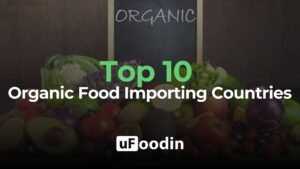
Market News
Top 10 Organic Food Importing Countries
The organic food market has witnessed explosive growth over the last decade, driven by increasing consumer awareness about health, sustainability, and ethical sourcing. Valued at

The organic food market has witnessed explosive growth over the last decade, driven by increasing consumer awareness about health, sustainability, and ethical sourcing. Valued at

The alcohol-free beverage market has emerged as a global phenomenon, driven by health-conscious consumers, shifting cultural norms, and evolving preferences for diverse drink options. Valued

The organic food market has witnessed explosive growth over the last decade, driven by increasing consumer awareness about health, sustainability, and ethical sourcing. Valued at

The alcohol-free beverage market has emerged as a global phenomenon, driven by health-conscious consumers, shifting cultural norms, and evolving preferences for diverse drink options. Valued

Canned food plays a pivotal role in the global food industry, providing essential solutions for food preservation, convenience, and affordability. With a market valued at

Vegetables are an integral part of global trade, supporting both essential nutrition and diverse culinary traditions. In 2023, the global vegetable import market was valued

Fruits are an essential part of global trade, reflecting both cultural preferences and economic opportunities. In 2023, the global fruit import market was valued at

Seafood remains one of the most traded commodities globally, with annual trade exceeding $160 billion in 2023. The Top 10 seafood-importing countries account for over


There was a problem reporting this post.
Please confirm you want to block this member.
You will no longer be able to:
Please note: This action will also remove this member from your connections and send a report to the site admin. Please allow a few minutes for this process to complete.